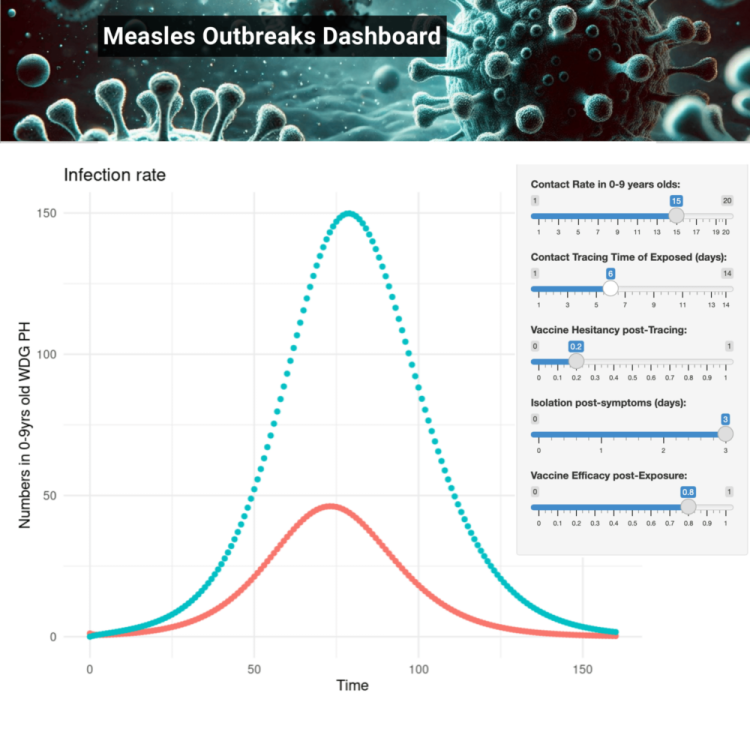As cases of flu, RSV and now measles rise, a University of Guelph professor's AI-powered tool may help warn against potential outbreaks.
Dr. Monica Cojocaru, a professor in U of G's Department of Mathematics and Statistics, leads the AI4Casting Hub, an innovative public health forecasting project managed by the College of Engineering and Physical Sciences.
The AI4Casting Hub creates interactive dashboards that forecast the trajectory of human diseases. Using AI to combine and analyze research-submitted data, the latest release has been programmed to show how measles could spread among children up to nine years old based on real-world assumptions about contact rates, contact tracing of exposed individuals, days spent in isolation and more.
Through various sliders, users, from citizens to public health stakeholders, can adjust variables to see how infection rates change.
"The dashboard lets anyone test different scenarios," says Cojocaru. "With this tool, we visualize and understand just how critical vaccination rates, contact tracing speed and public health interventions are in preventing outbreaks."
Contact tracing critical to stop outbreaks
One critical variable, Cojocaru says, is contact tracing time: the number of days it takes for public health to trace a child possibly exposed to measles.
"If contact tracing happens within one to three days, infections drop to zero quickly," says Cojocaru. "But if tracing takes longer - four, five or six days - cases rise significantly."

Measles outbreaks dashboard on AI4Casting Hub lets users adjust variables to see changes in infection rates
Another major feature captures the effects of vaccine hesitancy.
"Because measles is highly contagious, even a slight dip in vaccination coverage can increase the risk of outbreaks," says Cojocaru. "Herd immunity requires around 95 per cent vaccine coverage, but even a drop to 85 per cent could trigger outbreaks."
The measles-mumps-rubella (MMR) vaccine is highly effective, she adds, but misinformation is a growing challenge.
"The highly effective vaccine is linked to entirely false and debunked claims of causing autism in young children," she says. "Vaccination fatigue from COVID-19 has also likely led to lower immunization rates."
The model shows that the lack of vaccine uptake may strain our health care system and lead to higher infection rates, Cojocaru adds.
Next steps: Expand AI forecasting
Cojocaru's team is working to expand the forecasting of flu, RSV and COVID-19 trends using AI to predict how these illnesses evolve in the face of vaccination fatigue. Incorporating wastewater surveillance data would allow the Hub to host the potential rise in pathogens of concern and support better tracing of measles outbreaks.
The AI4Casting Hub is also developing new forecasting tools to track vaccination uptake using online search trends.
"This kind of AI-driven forecasting could help public health officials respond proactively," says Cojocaru.
For a full list of partners and funders, visit the official AI4Casting Hub website.










